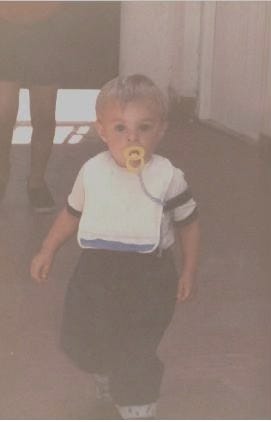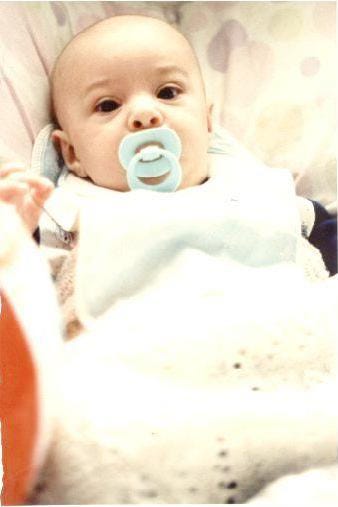Collective Unconscious
Some records are woven into the fabric of an entire nation: you may forget about them, but they are always there

I have a complicated relationship with my native Argentina. Friends and family aside, I’ve always struggled to connect with the country itself.
It’s a wonderful nation, with a rich culture, stunning landscapes and, arguably, the most resourceful and tenacious people in the world. The country has been plagued with political and financial instability for decades, yet Argentinians always find a way: it’s embedded into our DNA.

Clearly, there is plenty to love. I suppose I’ve always had my mind elsewhere. A chronic anglophile from the crib, I gravitated towards England—if it wasn’t in my destiny, I would have found a way. And I did. I found love, fulfilling work and the happiest of lives in this faraway land, 7 thousand miles from where I was born, and I never looked back.
So, as you can imagine, it was unusual for me to choose an Argentinian film on a long-haul flight recently. Unusual because I don’t do Argentinian things, I’m not up-to-date with what’s going on over there (other than how loved ones are doing), and unusual because, admittedly, I don’t talk about my origins very often.
The movie in question, Argentina, 1985, is based on a true story: the trial of the juntas, i.e. the military dictatorship that ruled the country from 1976 to 1983, during which the extrajudicial murder and forced disappearance of civilians were par for the course.

This is perhaps the most delicate topic in recent history for Argentinians to discuss. While accounts of the horrendous dictatorship are well documented, I knew very little about the immediate aftermath: those years in the mid 1980s when democracy had just been restored but there was still a lot of tension and division all around.
My sister was born in 1984, only one year after the return of democracy. I arrived four years later, in 1988. People were living, and working, and raising families like mine in what was still an extremely tense and scary political context. Some of my parents’ friends or acquaintances had been abducted: the famous "desaparecidos", i.e. thousands of people, mainly students or young professionals, who were kidnapped, tortured, and most probably killed, but whose whereabouts are still unknown.
The violence in the seventies and early-to-mid eighties was ruthless. This was an extremely dark period for the whole nation, and the wounds are still fresh.

At some point towards the end of the film, a song starts playing...
Nace una flor, todos los días sale el sol
De vez en cuando escuchas aquella voz…
[English translation]
A flower is born, the sun rises every day
You occasionally hear that voice…
It’s a famous Argentine rock anthem. I instantly recognised it, as I used to hear it a lot in the background as a kid, but I had completely forgotten about it.
I couldn’t recall its title, or the artist, but I knew it. And I felt it.

A couple of bars of this song, a lyric here and there, and I'm crying. Full on crying.
What was the name of this song? Of course I know it, my friends used to play it all the time. This famous Argentine rock star, whose name I couldn’t recall either. It all sounded very familiar yet strangely remote.
And then the chorus, talking about freedom... I'm crying, inconsolably at this point, not sure exactly why.
I can't really call it nostalgia, no, because I was born only a couple of years later. But I did feel a lot, all at once. The exact chronology didn’t matter, because I was coming to terms with my past, my parents’ past, and the circumstances immediately preceding my birth. More importantly, I was reconnecting with something deeper.
I didn’t realise there were all these wounds for me to process or heal. My parents didn’t have much money, but we were happy, there was always food on the table, and it breaks my heart to think that, amidst such an extremely tense and violent sociopolitical context, they still chose life. Risking their lives, they chose to get out there and carry on. And we were happy. Still are, in a way, with a different configuration, but still are.

The film ended, and while I still couldn’t recall the name of the song, I knew it had touched fibres I didn't even know were there. It went straight through my heart, without warning, reaching the deepest and darkest corners of my soul.
I cried for my own innocence as a young boy, I cried because of the sacrifices my parents made, I cried thinking of my mum cooking a meal with a smile on her face, I cried thinking of my dad taking my sister and me to the local park on a Sunday afternoon. I cried thinking of all the people who lost loved ones.

Once I landed and caught phone signal, I searched the lyrics. My heart jumped when I discovered, or remembered, the name of this song: Inconsciente colectivo. Collective unconscious. Yes, like the Jungian concept that describes the ancestral knowledge and imagery of a certain group, nation, or humankind as a whole.
The lyrics don’t mention the title, not even once, but you couldn’t think of a better name.
I guess I’ll never be what you would call quintessentially Argentinian. Quite the opposite. I spent most of my life perfecting my English, I only travel with my British passport, and people praise my Spanish as if it was my second language.
But at that precise moment, still at the airport, phone in hand, with my jaw completely dropped and feeling shivers down my spine, I knew I had come full circle: that faraway land in South America, where I was born, seven thousand miles from where I live, can still feel like home.
Thanks for reading, and happy spinning!





This is so beautiful. I'm so glad you wrote it. My wish is that more of us who love music would write about music like this -- because ultimately I think it's the emotional and spiritual connection to music that makes all the rest of it matter. And I think it's too easy to lose touch with that, amid all the tech.
PS I wish I knew more about the context of the photos, what it is I'm seeing and why you chose those photos? hint hint... ;-)
Very well written.